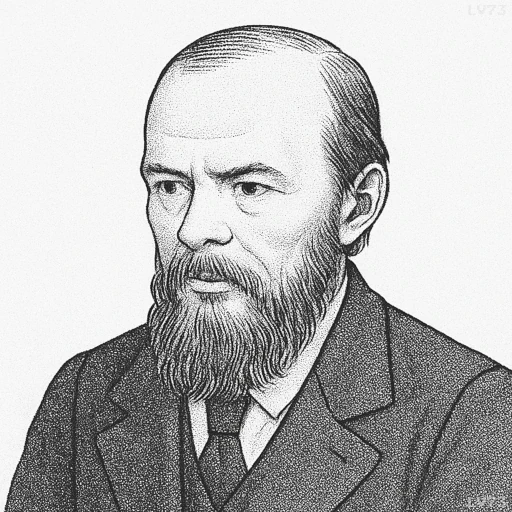“To love someone means to see him as God intended him.”

- November 11, 1821 – February 9, 1881
- Born in the Russian Empire
- Novelist, philosopher
table of contents
Quote
“To love someone means to see him as God intended him.”
Explanation
Dostoevsky’s quote explores the idea of true love as an act of spiritual vision and acceptance. To love someone, in his view, is not merely about affection or attraction, but about seeing the other person as they are in their purest, most authentic form—as they were meant to be by God. This type of love transcends superficial judgments, flaws, or imperfections. It involves recognizing the divine spark in others, acknowledging their intrinsic worth and potential, and understanding them through a lens of compassion and grace. Dostoevsky, a deeply religious thinker, often framed his characters’ moral and spiritual struggles in terms of their ability to embrace or reject God’s will for their lives. To love someone in this way is to see them not just as they are now, with all their human failings, but as they could become—redeemed and whole in the eyes of God.
This quote can also be seen as an exploration of Christian love (agape), which calls for individuals to love one another unconditionally, as Christ loves humanity. Dostoevsky’s Christian worldview emphasized that love is not a transactional or self-serving emotion, but a selfless act of grace. In this sense, seeing someone as God intended them is not just about idealizing them but about embracing their humanity—their struggles, contradictions, and flaws—and offering love in spite of it all. This notion can be especially profound in the context of suffering and forgiveness, where love becomes a transformative force that helps individuals grow and heal. It is not just a feeling but an act of spiritual recognition and redemption.
In contemporary society, this idea challenges the often transactional nature of modern relationships, where people are frequently judged based on external factors such as appearance, status, or utility. In an age of superficial connections and social media influence, the concept of loving someone as they are intended—beyond the surface—can feel countercultural. Yet, this type of unconditional love is still sought after in relationships that prioritize authenticity, empathy, and mutual growth. Whether in romantic partnerships, friendships, or familial bonds, loving someone as God intended them is a call to look beyond flaws and imperfections and to see the divine potential in each person, recognizing them as worthy of compassion, respect, and dignity.
Would you like to share your impressions or related stories about this quote in the comments section?


